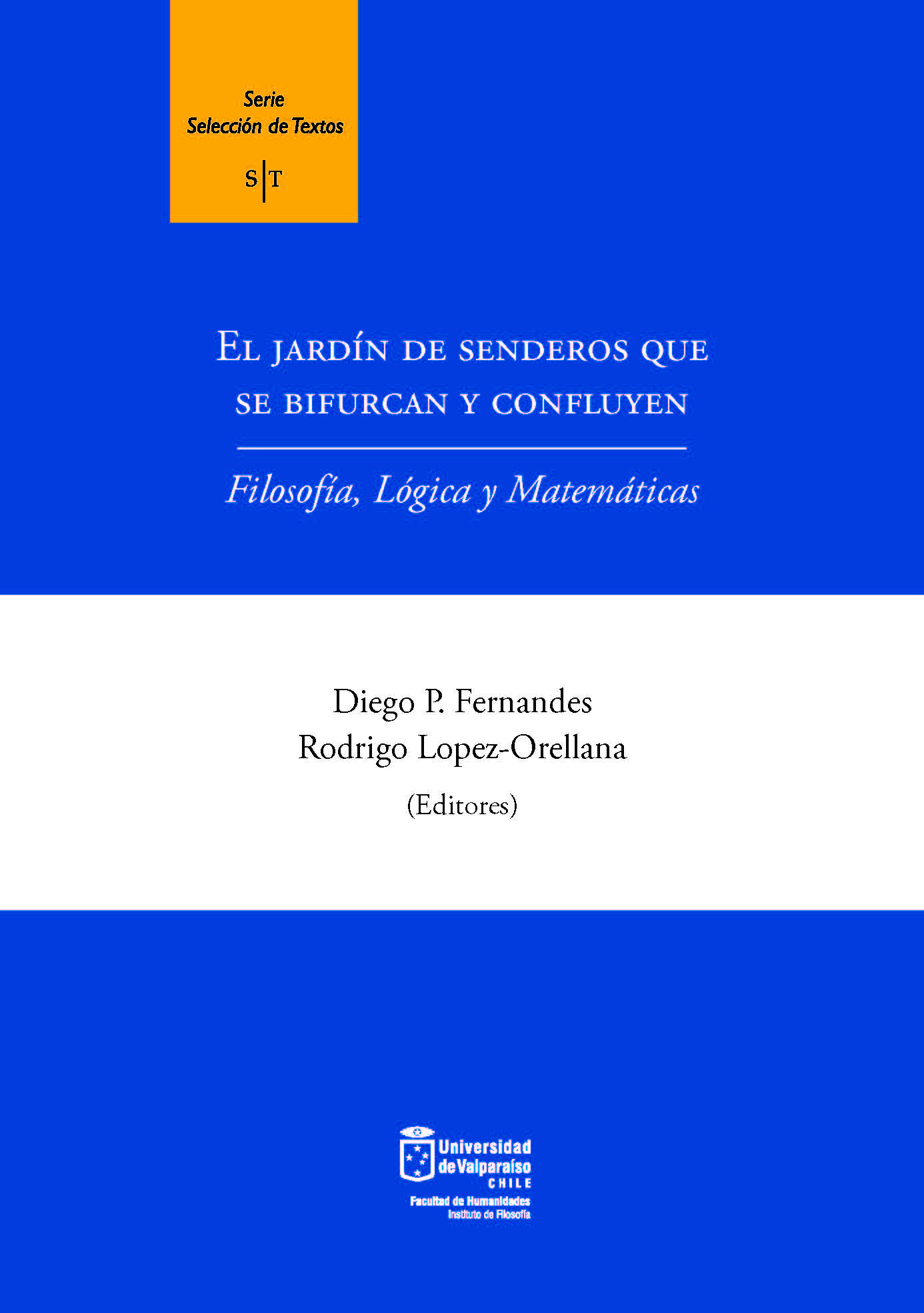La polémica entre sintaxis y ´semántica en Post, Lewis y ´Wittgenstei
DOI:
https://doi.org/10.22370/sst.2020.8.4921Palabras clave:
historia de la lógica, tablas de verdad, protosemántica, completud, PrincipiaResumen
En lógica, la idea de que la sintaxis y los cálculos proporcionan una precisión y ´un rigor de los cuales carece la semántica es relativamente común. El objetivo del ´presente artículo es analizar las raíces históricas de esta idea. Para ello, nuestro ´punto de partida será la tesis doctoral de Post, donde se prueba la corrección y ´la completud de la lógica proposicional. Las tablas de verdad se desarrollan con ´una actitud cautelosa hacia los significados, que se consideran “ajenos” al sistema formal. Esta actitud proviene de Lewis, quien defendía que su “concepción heterodoxa” de la lógica debía confrontarse con la filosofía de las matemáticas de los ´Principia. Para esta concepción, un sistema formal es una cadena de signos que ´pueden manipularse por medio de reglas puramente sintácticas. Defendemos que este punto de vista es compartido no solo por Post y Lewis, sino también por Witt- genstein. Sin embargo, la consecución de resultados metalógicos más importantes (como la completud de la lógica de primer orden) requerir ´ a nuevas herramientas ´semánticas que fueron dominadas en la escuela de Hilbert.
Citas
Alonso, E. (2013). La completitud como propiedad redundante. Notae Philosophicae Scientiae Formalis, 2:74–86.
Aranda, V. (2019a). Completud débil y Post completud en la escuela de Hilbert. Revista de Humanidades de Valparaíso, 14:449–466.
Aranda, V. (2019b). La verdad lógica en el fragmento proposicional de los Principia y sus implicaciones metalógicas. Andamios. Revista de Investigación Social 41:43–61.
Barker-Plummer, D., Barwise, J., y Etchemendy, J. (2011). Language, Proof, and Logic. Stanford: Center for the Study of Language and Information.
Bernays, P. (1918). Beitrage zur axiomatischen behandlung des logik-kalküls. In Ewald, William y Sieg, W., editor, David Hilbert’s Lectures on the Foundations of Arithmetic and Logic 1917–1933, page 231–269. Dordrecht: Springer.
Boole, G. (1854). An investigation of the laws of thought: on which are founded the mathematical theories of logic and probabilities. Cambridge: MacMillan and Co.
Church, A. (1956). Introduction to Mathematical Logic. Princeton: Princeton University Press.
Frege, G. (1967). Begriffsschrift [1879]. In Van Heijenoort, J., editor, From Fregeto Godel: a Source Book in Mathematical Logic ¨ , pages 1–82. Harvard: Harvard University Press.
Hilbert, D. (1917). Prinzipien der mathematik. In Ewald, W. y Sieg, W., editors, David Hilbert’s Lectures on the Foundations of Arithmetic and Logic 1917–1933, pages 59–219. Dordrecht: Springer.
Hilbert, D. y Ackermann, W. (1928). Grundzuge der theoretischen logik. In Ewald, W. y Sieg, W., editors, David Hilbert’s Lectures on the Foundations of Arithmetic and Logic 1917–1933, pages 809–916. Dordrecht: Springer.
Kleene, S. C. (1974). Introduccion a la metamatemática. Madrid: Tecnos.
Lewis, C. I. (1918). A survey of symbolic logic. Berkeley y Los Angeles: University of California Press.
Manzano, M. y Alonso, E. (2014). Completeness: From Godel to Henkin. History and Philosophy of Logic, 35(1):50–75.
Peano, G. (1906). Additione. Revista de mathematica, 8:143–157.
Post, E. L. (1921). Introduction to a general theory of elementary propositions. In Van Heijenoort, J., editor, From Frege to Godel: a Source Book in Mathematical Logic, page 264–283. Harvard: Harvard University Press.
Post, E. L. (2004). Undecidable propositions. account of an anticipation [1941]. In Davis, M., editor, The Undecidable, pages 338–433. Nueva York: Dover.
Ramsey, F. P. (1925). The foundations of mathematics. In Mellor, D., editor, Foundations, pages 152–212. Londres: Kegan Paul.
Russell, B. (1903). Principles of mathematics. Cambridge: Cambridge University Press.
Russell, B. (1963). Letter to Henkin. In Grattan-Guinness, I., editor, The search for mathematical roots, 1870-1940, page 592–593. Princeton: Princeton University Press.
Schroder, E. (1890). ¨ Vorlesungen uber die algebra der logik volume 1. Leipzig: Druck und Verlag von B. G. Teubner.
Tarski, A. (1933). The concept of truth in formalized languages. In Corcoran, J., editor, Logic, semantics, metamathematics, page 152–278. Indianapolis: Hackett.
Von Plato, J. (2017). The great formal machinery works: Theories of deduction and computation at the origins of the digital age. Princeton: Princeton University Press.
Whitehead, A. N. y Russell, B. (1910). Principia Mathematica, volume 1. Cambridge: Cambridge University Press.
Wittgenstein, L. (1922). Tractatus logico-philosophicus. London: Kegan Paul.
Descargas
Publicado
Cómo citar
Número
Sección
Licencia

Esta obra está bajo una licencia internacional Creative Commons Atribución-NoComercial-SinDerivadas 4.0.

